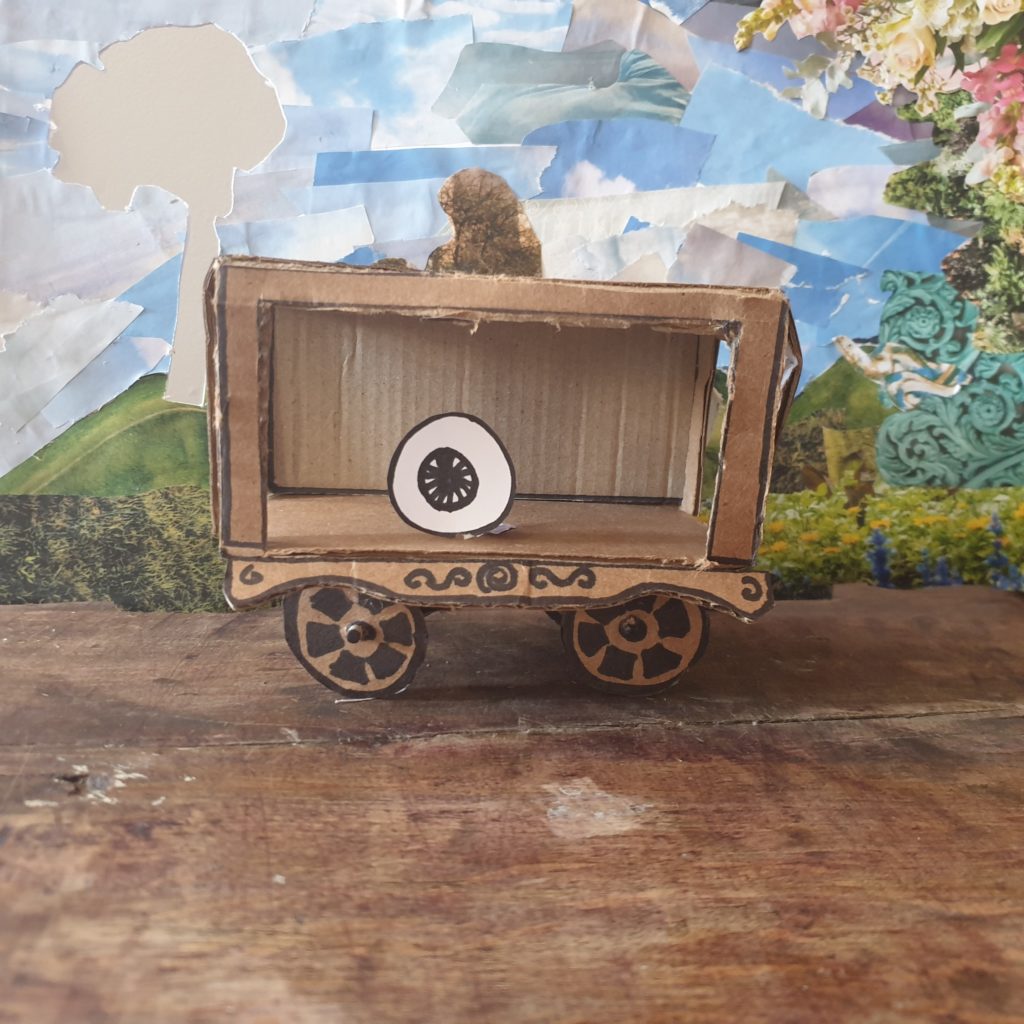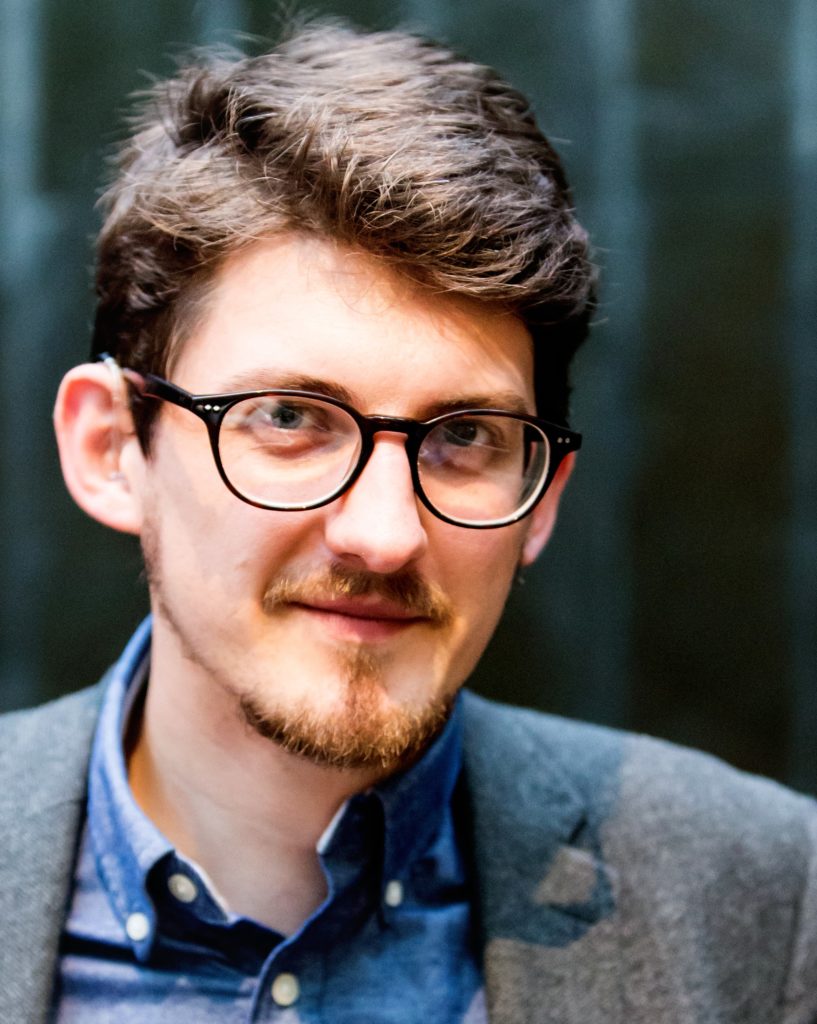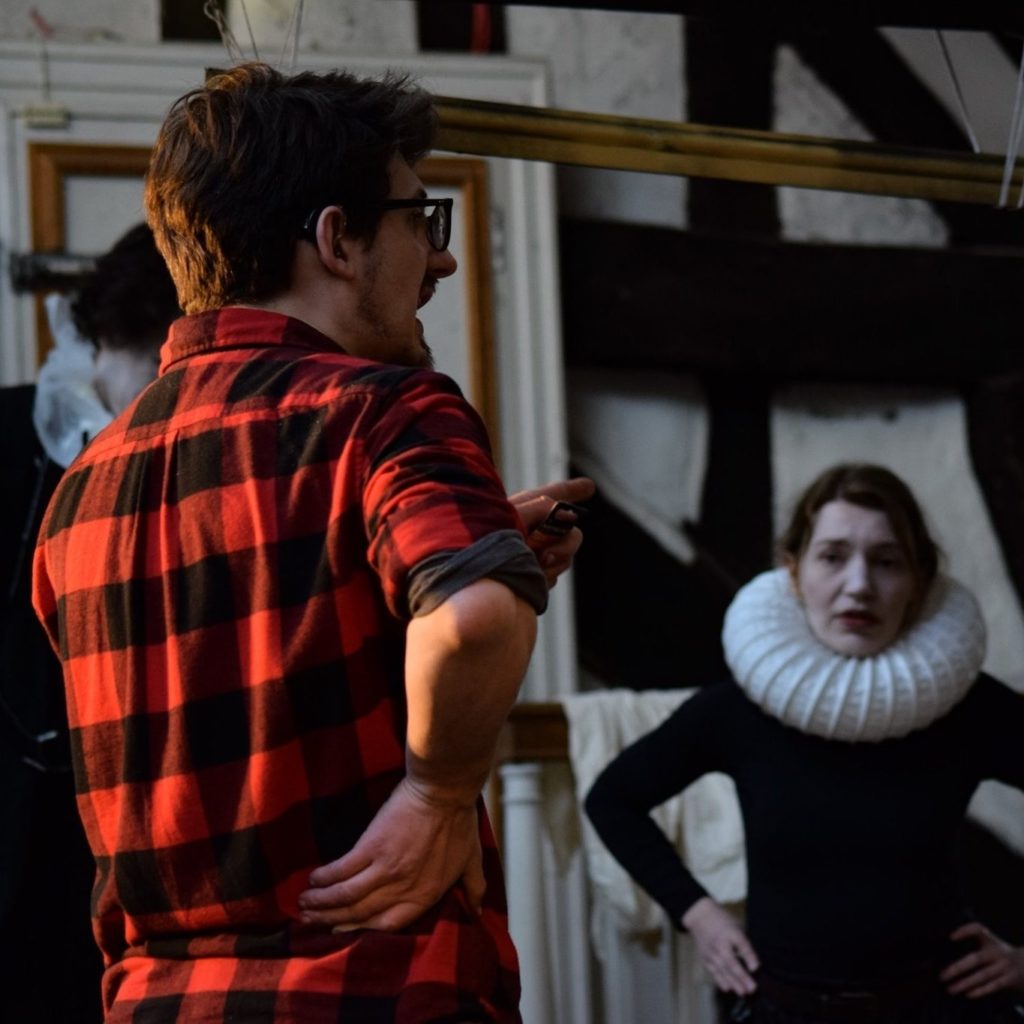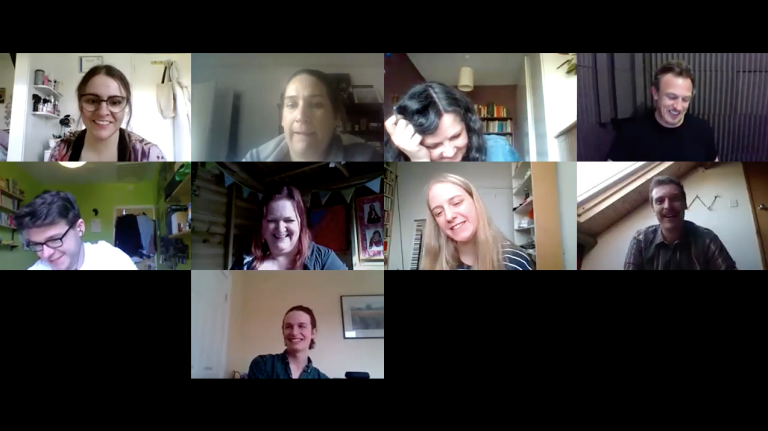
YORK theatre director and academic Tom Straszewski is seeking participants for York Mysteries @ Home, the chance to make a York Mystery Play in your abode.
“As part of my PhD on the York Mysteries and community theatre, I invite you and your household to create your own performances of one of the Mystery Plays at home,” he says.
“This approach is inspired by the medieval origins of the Mysteries, where Guild members worked from home on their crafts.”
Strasz has put together five DIY plays himself already that can be viewed on YouTube at https://tinyurl.com/homemysteries.
“Finding myself in a similar position, and limited to what was already in the house, I’ve been creating plays from whatever items I had lying around: often props and materials left over from old performances.”
Offering guidance, Strasz says: “You might have your own hobby or craft that provides inspiration. The main thing is to draw on what you already have, so that your play is personal to you and your home.
“This will then build up to a screening of the plays in the autumn next year, perhaps at a York venue, perhaps online.”
Anyone interested in taking on one of the plays is asked to e-mail Strasz at: Thomas.Straszewski@york.ac.uk. “If you have a particular play in mind, then include that, and any initial thoughts and ideas,” he advises.
“I’ll be running this in batches of five plays every month or so. If there’s a play later in the schedule you’re particularly interested in creating, let me know now and I’ll be in touch when we reach it – no commitment required.”
For more details, visit the website:
https://www.yorkmysteriesathome.co.uk/create-your-own.html
FROM this evening, additionally Strasz will be hosting a weekly read-through of the Mystery Plays every Tuesday on Zoom from 7.30pm to 9pm.
“These evenings are an opportunity to read each play out loud and discuss them with fellow friends of the York Mystery Plays,” he says.
“The ideas and connections made will hopefully lead to a full production of the Mystery Plays in the future, with these read-throughs as one way to form the performance right from the start.”
Strasz’s read-throughs will work through the 48 mediaeval plays in order. “We’ll be starting with The Creation Of The Heavens and The Fall Of Lucifer and we should be reaching The Nativity in December,” he says.
“As an informal group, you can drop in and out each week, depending on how often you’d like to attend.”
The Zoom details can be acquired by e-mailing Strasz at: thomas.straszewski@york.ac.uk. Scripts will be available via the YorkMysteries@Home website, under the Resources page.

Here Charles Hutchinson puts questions to Tom Straszewski on his DIY community project, York Mysteries @ Home.
Which plays have you done?
“So far, I’ve performed the first seven plays, and five are available online to date, from The Creation Of The Heavens to Cain And Abel. As winter closes in, I’ll hopefully reach The Nativity and make it to The Last Supper in time for Easter.”
What is the most unusual prop you have used?
“I don’t know about unusual, but I’ve enjoyed the matchsticks for Lucifer. Originally matches were made with sulphur and called ‘lucifers’ – light-bringers – which is the sort of bad pun I relish.
“I’ve got my eye on my son’s toy watering can for The Flood and lots of old props and costumes from my past plays will appear. It’s like seeing familiar actors in plays; I always enjoy spotting old props and costumes being reused.”
How have you filmed the Plays? On your phone or with a camera?
“All on my phone – you don’t need anything fancy. And it’s theatre, not film, playing in the moment, not editing the best shots together.
“Having said that, the first one I did was disastrous! I dropped the phone halfway through, just as I ate my last prop – a strawberry from the garden – so I did edit that one a bit. I’ve switched to using a tripod to avoid a repeat.”

What skills might you like Mystery Play home-play creators to display in the Plays they do?
“It could be anything: I’ve had suggestions of baking for The Last Supper and wood-working for The Crucifixion, which is fitting. If anybody out there paints stained glass, I’d love to see their take on any of the Plays with angels.
“But it could be as simple as finger-painting, sock puppets or Lego. The main thing is to find out how to tell these amazing stories in your own home with what’s available to you. Be bold and imaginative. And be willing to be surprised at how your idea of your home changes.”
Do you have anywhere in mind for showing the Mystery Plays films in York?
“Further lockdown permitting, it would be wonderful to hold it in somewhere linked to the Plays, one of the guild halls, perhaps, or in Museum Gardens. I’ll be looking for some collaborators to help put this on, assuming we’re allowed out of the house again by then. If not, we’ll hold a socially distanced celebration of everybody’s work online instead.”
Are the Plays being done in a particular order or in thematic clusters?
“I’m dependent on who volunteers to take on each play, but I’m hoping to work through them roughly in linear order, starting with The Creation and finishing with The Last Judgement. But if anybody has a burning need to do one of the later plays right now, there’s no need to wait.”
Is there previous history of the York Mystery Plays being performed in homes?
“Yes. It was wonderful to hear York Theatre Royal take on the plays as radio drama, recorded remotely in each actor’s own home during lockdown [for broadcast on Jonathan Cowap’s Sunday morning show on BBC Radio York]. But I missed the visuals!
“I was talking to a group of previous actors in the Plays and they all said the sense of spectacle was essential to the Mystery Plays. So, this project hopefully brings that back, on a tiny scale.

“And the medieval guilds who put on the plays often had their workshops in their homes, open to the public. So, making the plays at home draws on that sense of craftwork as a performance.”
Why are you so drawn to the Mystery Plays: what makes them resonate with you?
“Within the Plays themselves, it’s the marriage of the epic sweep with intimate moments: one minute creating the whole world, the next moment seeing Adam and Eve arguing over who should take the blame for messing up.
“On that domestic scale, the story of Mary takes her from a teenager in an impossible situation, to mourning her son, to acting as a matriarch for a whole host of disciples. I’d love to really focus on her story one day.
“And that gives a sense of how endless the possibilities are. In 2018 alone, for the Waggon Plays that summer, people based their Mystery Plays on children’s pop-up books, Russian art, street graffiti, Greek choruses, medieval tapestries, modern atrocities, climate change, to mention just a few. Shakespeare is probably the only other drama that sees that breadth of staging possibilities.
“The other thing that always stands out for me are the moments outside the Plays themselves – seeing somebody conquer their shyness, or find a new talent, or make new friends backstage. And they bring people together all across York.
“At a time when people are struggling to keep a sense of community at a distance, I think there’s a real need for the Mysteries – and for York’s community theatre more generally.”
